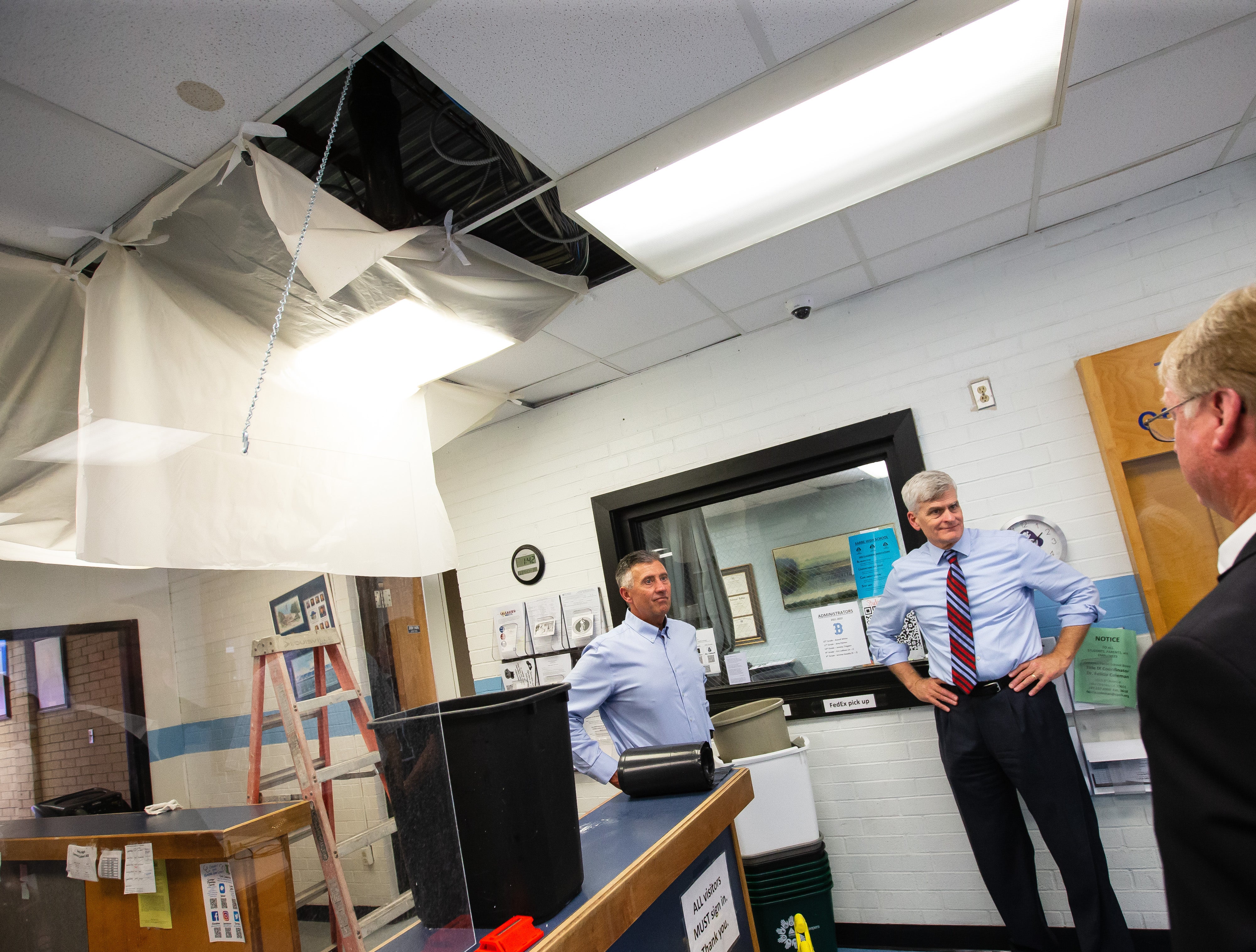Cassidy pushes law to criminalize leaks of Supreme Court decisions
Published 12:41 pm Wednesday, February 1, 2023

- Sen. Cassidy tours with local officials at Barbe High School in Lake Charles, La., Monday, June 27, 2022. (Rick Hickman/Lake Charles American Press)
U.S. Sen. Bill Cassidy, R-La., has announced the reintroduction of the Stop Supreme Court Leakers Act of 2022. This legislation criminalizes those who leak confidential information from the Supreme Court.
The reintroduction follows a recent announcement that after eight months of investigation the identity of the individual who leaked the draft decision overturning Roe vs. Wade was still unknown.
Cassidy said Court Marshal Gail Curley, who led the investigative team, referenced multiple times that the Leakers Act is “part of the solution,” as it would deter leaks in the future.
“The bill they are putting forward holds those that undermine the integrity of the court accountable,” he said. “It criminalizes the leak of information.”
According to Cassidy’s office, leaks that would be criminalized include: internal notes on cases heard by the Supreme Court, communication between the Chief Justice of the United States, associate justices, employee and officers of the Supreme Court, draft opinions or final opinions that have yet to be released to the public, personal information of the Chief Justice or associate justices and any other information that is designated confidential.
This act will penalize offenders with a $10,000 fine and up to a 10-year sentence. Additionally, profits resulting in book deals or cable television contracts would be seized.
“We are trying to restore the integrity of public institutions,” Cassidy said. “ We are trying to create a penalty to restore integrity.”
Cassidy also discussed his support to repeal the Windfall Elimination Provision and the Government Pension Offset.
WEP adjusts social security benefits for workers who receive a non-covered pension, while GPO adjusts social security spousal or widow(er) benefits for workers who receive a non-covered pension.
Louisiana is one of 27 states that adopted these policies during the 1980s, he said.
Cassidy said these provisions “unfairly penalizes those who dedicate their lives to public service.” Problems with WEP and GPO arise for public workers who are also employed in jobs that do pay into social security.
“The WEP and GPO formula unfairly penalizes them on the amount of money that they earn while paying into social security,” he said. “It’s high time to repeal this outdated and harmful provision”
“It would mean a lot to those retirees, or going to be retirees in Louisiana that are serving through state and local government… Congress has a responsibility to make sure that seniors get the benefits they’ve been promised, the benefits that they have paid towards, while also making sure that the social security trust fund is there for future generations.”
Currently, Cassidy is working on a comprehensive bill to repeal WEP and GPO and solve insolvency in social security. He said “wrapping” it up in an overall plan that addresses social security insolvency will increase the odds of the legislation getting passed. His goal is to address solvency in general, which will lead to addressing social security, WEP and GPO.
“The only way that we can come to the decisions that we need to make for social is by addressing the fairness issue. WEP and GPO are unfair,” he said. “I’m about making the program more fair. I’m about making the program better.”
The concerns on WEP and GPO are separate from concerns regarding the debt ceiling, Cassidy said. “Don’t tie it up into the debt ceiling, that’s too political. Let’s tie it up into what is the right thing to do,” he said. “What is the thing that is going to make somebody who is reliant upon on social more financially secure, and that’s what we’re working towards.”





